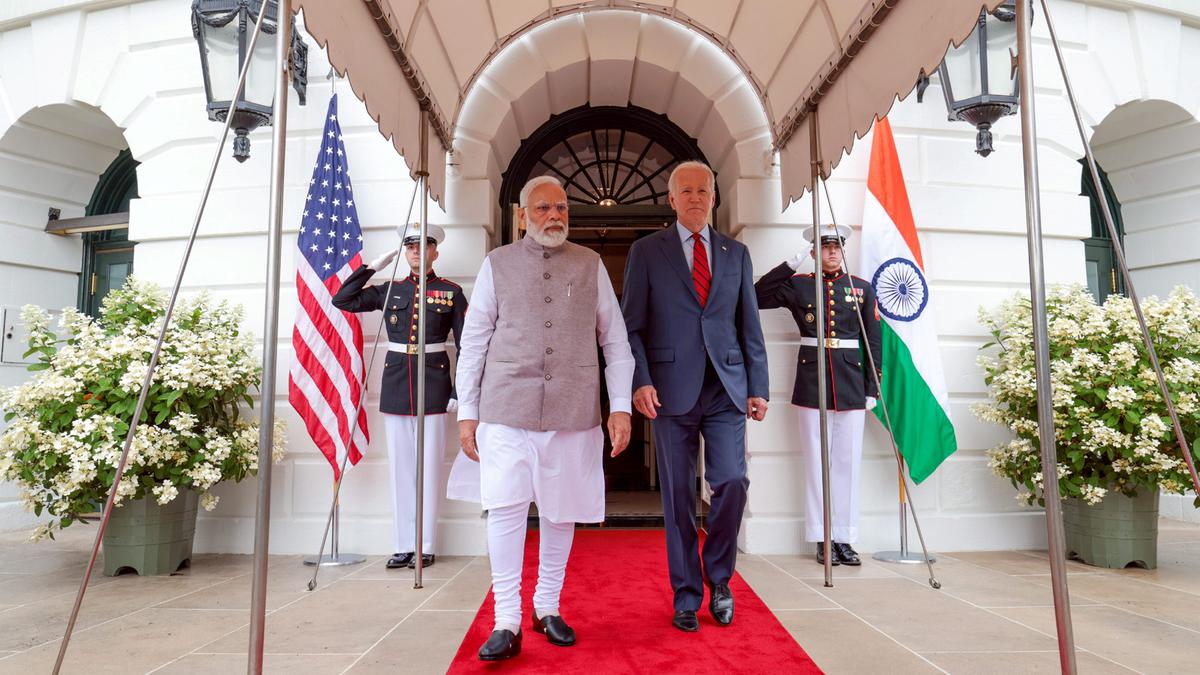
Explained | Artemis Accords, India-US space collaboration and how it relates to ISRO’s missions Premium
The Hindu
India has decided to join the ‘Artemis Accords’ led by the United States of America – an effort to put humans back on the moon by 2025.
‘Even the sky is not the limit,’ declared Prime Minister Narendra Modi on June 25, Thursday, while announcing that India has decided to join the Artemis Accords, marking a leap in Indo-US space cooperation.
“By taking the decision to join the Artemis Accords, we have taken a big leap forward in our space cooperation,” said Mr. Modi at a news conference at the White House with US President Joe Biden. India joins 26 other countries who have signed the non-binding treaty for space exploration of the moon, Mars and beyond.
As per the joint statement released by the White House, the two nations’ space agencies — National Aeronautics and Space Administration (NASA) and Indian Space Research Organisation (ISRO) — will jointly send Indian astronauts, trained at the Johnson Space Center in Houston, Texas, to the International Space Station (ISS) in 2024. The statement also mentions India’s signing of the Artemis Accords to advance a common vision of space exploration for the benefit of all humankind.
Based on the Outer Space Treaty of 1967 (OST), the Artemis Accords were established by the U.S. State Department and NASA with seven other founding members — Australia, Canada, Italy, Japan, Luxembourg, the United Arab Emirates, and the United Kingdom— in 2020 for setting common principles to govern civil exploration and use of outer space, the moon, Mars, comets, and asteroids, for peaceful purposes.
The 27 signatories to the Artemis Accords are the US, Australia, Canada, Italy, Japan, Luxembourg, the United Arab Emirates, the U.K,. Ukraine, South Korea, New Zealand, Brazil, Poland, Mexico, Israel, Romania, Bahrain, Singapore, Colombia, France, Saudi Arabia, Rwanda, Nigeria, Czech Republic, Spain, Ecuador, and now, India.
Commitments under the Accords
Under the Artemis Accords, the signatories will implement memorandum of understanding (MOUs) between governments or agencies to conduct space activities for peaceful purposes in accordance with international law. They are committed to share national space policies transparently with one another and scientific information resulting from their activities with the public and the international scientific community on a good-faith basis.

 Run 3 Space | Play Space Running Game
Run 3 Space | Play Space Running Game Traffic Jam 3D | Online Racing Game
Traffic Jam 3D | Online Racing Game Duck Hunt | Play Old Classic Game
Duck Hunt | Play Old Classic Game











